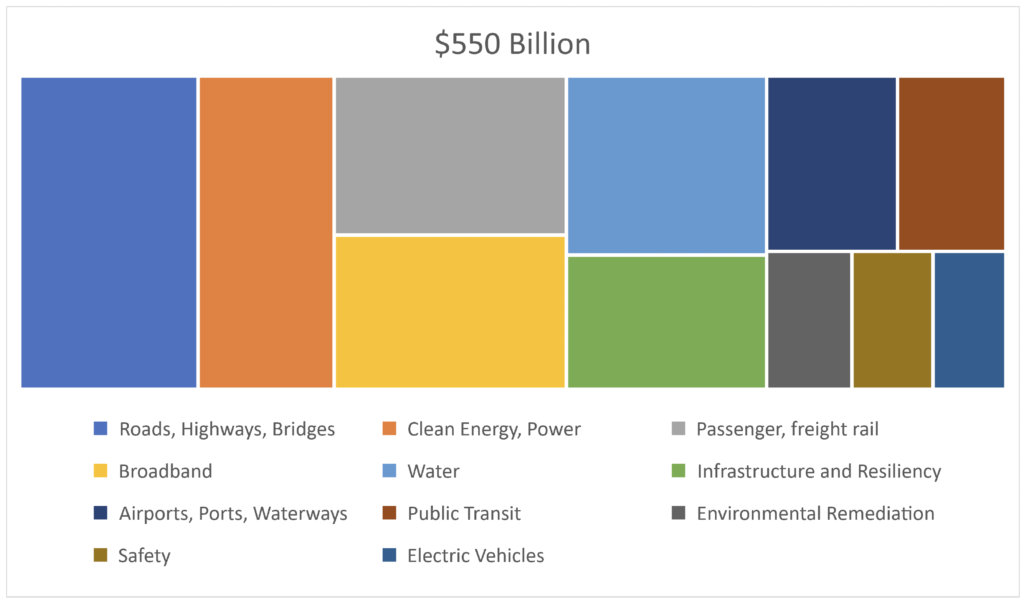The Bipartisan Infrastructure Law (BIL) passed by Congress and signed by the President in November 2021, provides $550 billion in new funding to rebuild core infrastructure in the US. It’s a once-in-a-generation investment in the nation’s public services that will also have a huge, long-term impact on the way courts function and deliver services to their customers in the future.
While $100 billion is allotted to fixing roads, highways, and bridges, a historic amount of funding will additionally be allocated to expand high-speed internet broadband helping to close the digital divide for marginal populations and enhance access to justice, upgrade cyber security for justice information systems, and improve public building (read: courthouse and court facility) safety programs, and cause the expansion of environmental justice litigation. These are just a few of the prospective changes to look for in the years ahead. The chart below outlines the way more than half-a-trillion in funding will be distributed.
- Roads, Highways, Bridges ($100 B). Funds to upgrade roads and bridges and new grant programs to address climate change and resilience.
- Clean Energy and Power ($76 B). Upgrading power infrastructure and energy efficiency, investments in the electrical grid, clean energy demonstration projects and supply chains.
- Passenger and Freight Rail ($66 B). Funding for Amtrak modernization, Northeast Corridor, and intercity rail funding for capital investment, operations and maintenance, and program operations.
- Broadband ($64 B). Investments in broadband connectivity, digital equity and affordability.
- Water ($64 B). Funding for clean drinking water and large investments in lead pipe removal.
- Infrastructure and Resiliency ($48 B). Investments in infrastructure to counter cyberattacks, effects of climate change, and safety programs.
- Airports, Ports, and Waterways ($41 B). Funding for airports (terminal improvements, multimodal transport, and traffic control infrastructure) as well as port infrastructure and waterways.
- Public transit ($34 B). Transit funding and competitive grants for capital investment, operations and maintenance, and program operations; includes funding for zero-emissions vehicles.
- Environmental Remediation ($21 B). Remediation of legacy pollution, as well as funds to clean up 1,200 superfund sites, improve brownfield sites to usable land tracts, and reclaim abandoned mine land.
- Safety ($20 B). Funding for safety programs.
- Electric Vehicles ($18 B). Funding for both development electric-vehicle charging infrastructure, and acquisition of low/no-emission vehicles.

